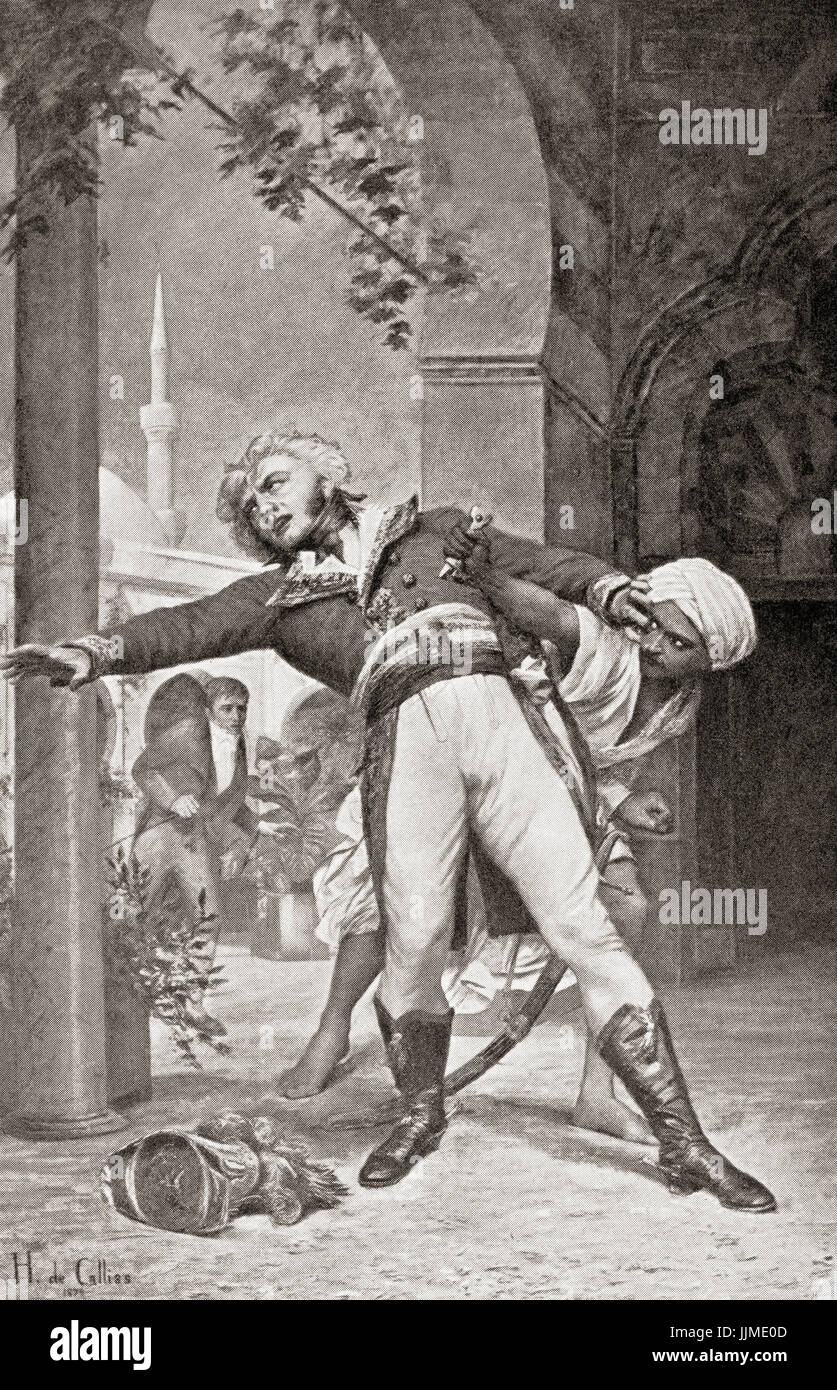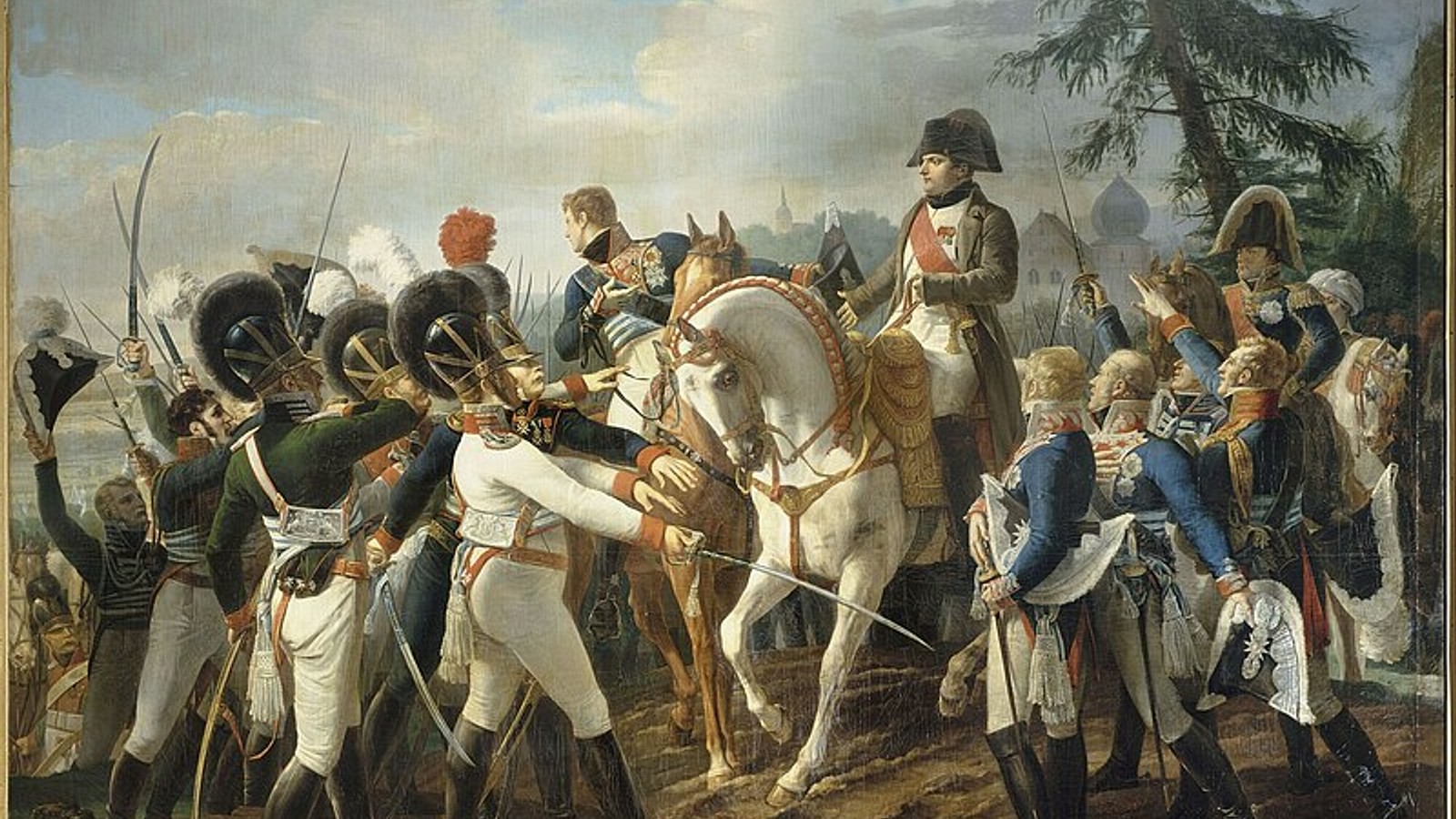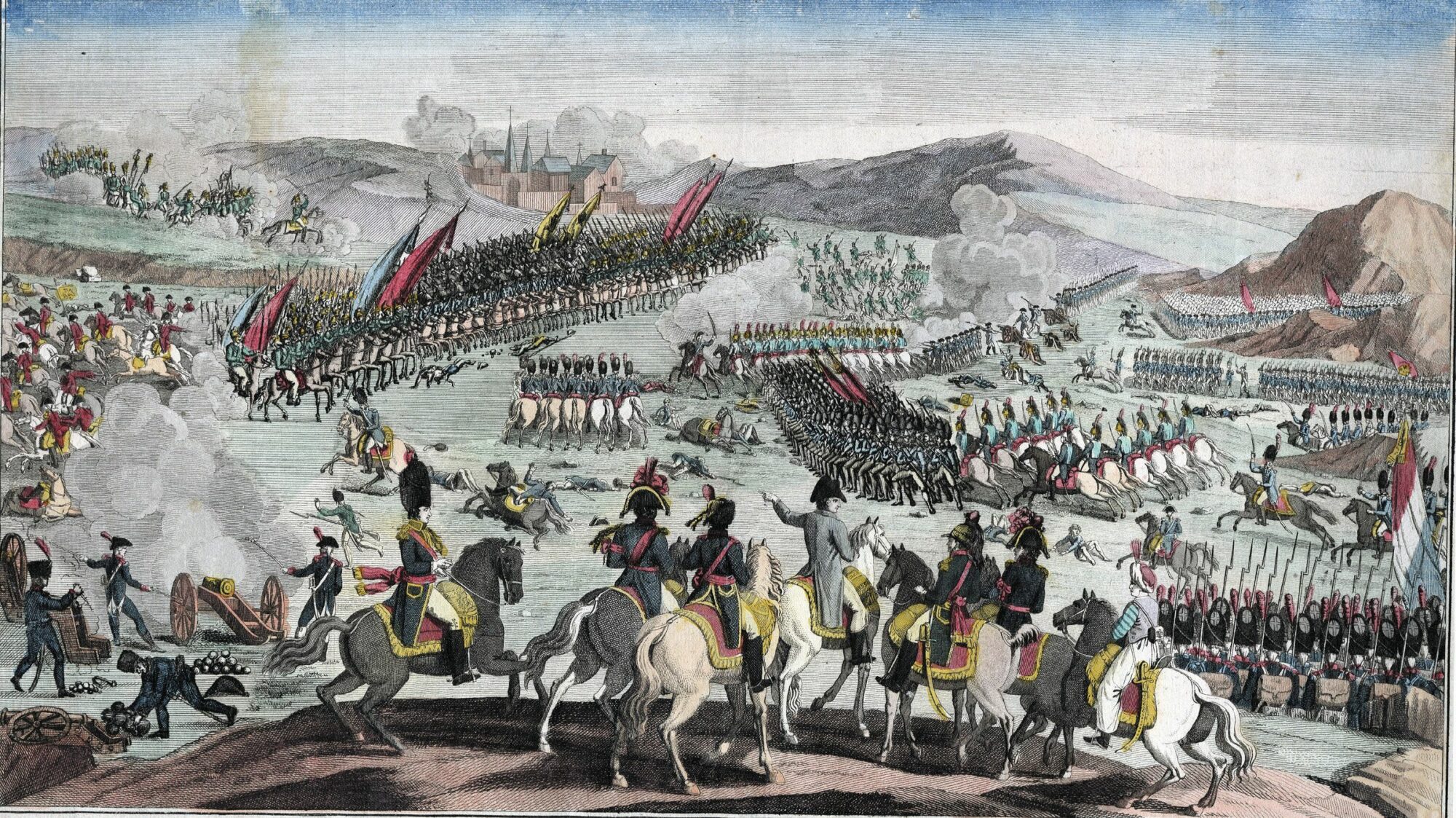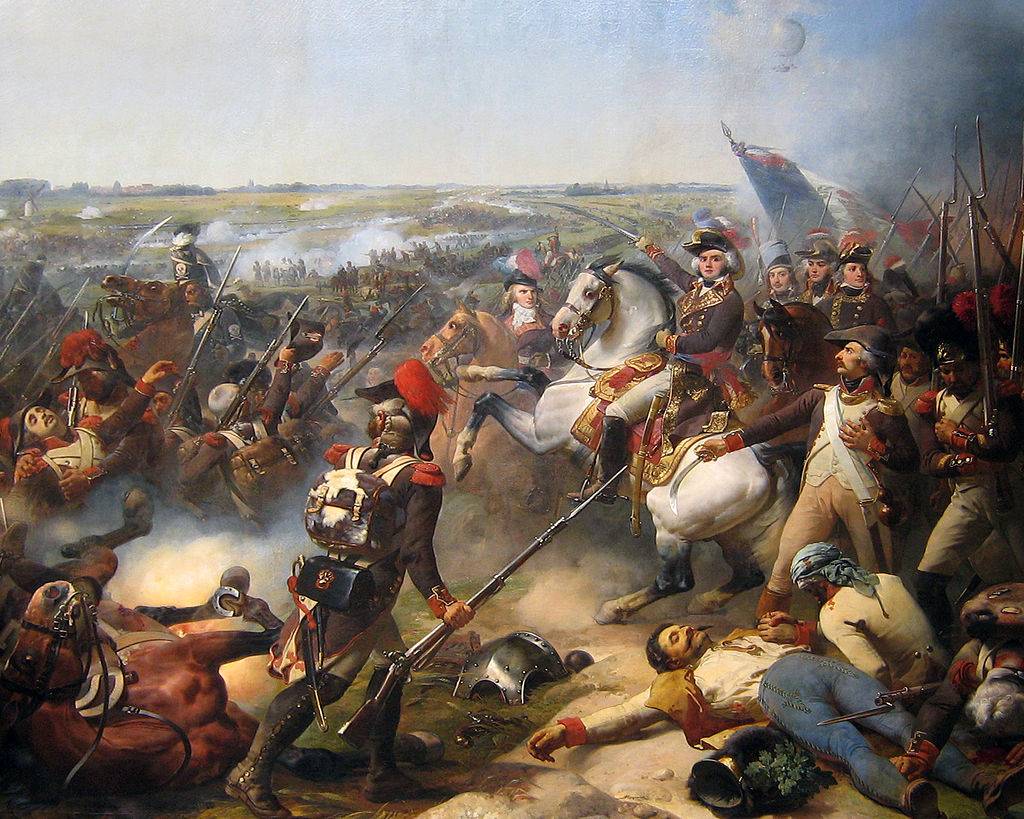
When we reflect on the French Revolutionary Wars, it is common for figures like Napoleon Bonaparte to dominate our thoughts and discussions. However, there is another remarkable individual whose contributions were equally significant during this tumultuous period: **Jean-Baptiste Kléber**. This brilliant general not only played a pivotal role in the military campaigns of the time but also navigated the complexities of a rapidly changing political landscape. Kléber’s life was filled with drama, intrigue, and remarkable achievements that deserve recognition. His story is one of courage, strategic brilliance, and a deep commitment to the ideals of the Revolution. Let’s explore the captivating journey of Jean-Baptiste Kléber and uncover the impact he had on the course of history during one of France’s most transformative eras.
Early Life: The Foundations of a General

Born to a Mason
Jean-Baptiste Kléber entered the world on **March 9, 1753**, in the vibrant city of **Strasbourg, France**. His upbringing was heavily influenced by his father, who worked as a mason. This background instilled in young Kléber a strong work ethic and an appreciation for craftsmanship. Interestingly, before he embarked on his illustrious military career, Kléber initially set his sights on the field of architecture. His early aspirations were rooted in design and construction, showcasing his creative talents and ambition. However, fate had other plans for him, steering him away from blueprints and buildings toward the battlefield, where he would ultimately make his mark as a formidable military leader.
Military Beginnings
In **1776**, Kléber took a significant step in his life by enlisting in the **Austrian army**, where he dedicated himself to military service until **1782**. This period was crucial, as it provided him with invaluable experience and insights into military strategy and operations. His time in the Austrian army laid a solid foundation for his future endeavors in the military realm. However, it was the onset of the **French Revolution** that truly ignited his passion for military leadership and allowed him to rise to prominence. The revolutionary fervor of the time offered Kléber the opportunity to channel his skills and ambitions into a cause that would change the course of history.
The Revolutionary Era: A Turning Point

Joining the National Guard
In the summer of **July 1789**, as the fervor of the French Revolution began to sweep across the nation, a young and ambitious Kléber made a significant decision to enlist in the **National Guard**. This choice represented a crucial turning point in his life, as he transitioned from a career in architecture to one in military leadership. The atmosphere during this period was charged with excitement and uncertainty, as people rallied for change and fought for their ideals. Kléber found himself amidst the chaos, embracing the challenges that came with this new role and the responsibilities it entailed.
Defending Mainz
By **1793**, Kléber had risen through the ranks and was serving as a **Lieutenant Colonel**. His skills and strategic acumen were put to the test when he took on the formidable task of defending the city of **Mainz** against a siege by Austrian forces. From **April to July**, he led his troops with determination and courage, successfully repelling the enemy’s advances. This impressive display of military prowess not only solidified his reputation as a capable leader but also resulted in his well-deserved promotion to the rank of general in **August 1793**. Kléber’s actions during this critical time highlighted his commitment to the revolutionary cause and his ability to inspire those around him.
Crushing the Vendée Uprising

The Vendée Conflict
One of the most significant accomplishments in the military career of General Jean-Baptiste Kléber was his pivotal role in suppressing the **counterrevolutionary uprising** that erupted in the **Vendée** region of France. This area was characterized by a strong royalist sentiment, which posed a considerable challenge to the revolutionary government. Kléber was entrusted with the critical task of restoring order and quelling the unrest that had taken hold of the region. His leadership and strategic prowess were essential in addressing the complexities of this conflict, which was marked by fierce resistance from the local population.
Decisive Victories
On **October 17, 1793**, Kléber achieved a remarkable victory at **Cholet**, where he decisively defeated the forces of the Vendéans, showcasing his military acumen and determination. However, his campaign did not end there. Kléber continued to demonstrate his effectiveness as a military leader by going on to crush the rebel army in two additional significant battles—first at **Le Mans** on **December 13**, followed by a decisive engagement at **Savenay** just ten days later. These victories solidified his reputation as a formidable military powerhouse and played a crucial role in the eventual suppression of the Vendée uprising, contributing to the broader efforts of the revolutionary government to maintain control over France during a tumultuous period in its history.
Further Military Engagements

Joining the Army of the Moselle
In **April 1794**, Kléber was sent north to join **Jean-Baptiste Jourdan’s Army of the Moselle**. His leadership shone during the **Battle of Fleurus** on **June 26**, a key victory that helped secure French control over **Belgium**.
Napoleon’s Egyptian Campaign
In **1798**, Kléber’s journey took a dramatic turn when he was appointed commander of a division in **Napoleon Bonaparte’s** forces for the **invasion of Egypt**. This was a bold move that would change the course of his life.
The Egyptian Campaign: A New Chapter

Landing in Alexandria
On **July 1-2, 1798**, Kléber landed in **Alexandria**. However, he was wounded in the ensuing battle. But don’t count him out just yet! He stayed on as governor of Alexandria for several months, proving his resilience.
Victory at Mount Tabor
On **April 16, 1799**, Kléber showcased his military genius once again by defeating the **Turks at Mount Tabor**. This victory solidified his reputation as a formidable leader.
Leadership in Egypt

Taking Command
After Napoleon’s departure for France in **August 1799**, Kléber was left in command of the expeditionary forces. This was a huge responsibility, and he rose to the occasion.
The Convention with the British
In **January 1800**, Kléber signed a convention with a British admiral for the evacuation of French troops from Egypt. However, when the British government refused to recognize the agreement, Kléber had to take matters into his own hands.
Final Battles and Assassination

Defeating the Turks Again
On **March 20, 1800**, Kléber reopened hostilities and defeated a Turkish army at **Heliopolis**, near **Cairo**. He recaptured Cairo on **April 21**, further establishing his authority in the region.
The End of an Era
Just as he began to govern Egypt, tragedy struck. Kléber was assassinated by a fanatic on **June 14, 1800**. His untimely death marked the end of a remarkable career.
Legacy of Jean-Baptiste Kléber

A Forgotten Hero
Despite his significant contributions, Kléber remains a somewhat **forgotten hero** of the French Revolutionary Wars. His military strategies and leadership skills were instrumental in many victories, yet he often takes a backseat to more famous figures.
Impact on Military History
Kléber’s tactics and decisions during the Egyptian campaign have been studied by military historians and strategists alike. His ability to adapt to changing circumstances is a lesson for leaders in any field.

So, the next time you think about the French Revolutionary Wars, remember **Jean-Baptiste Kléber**. His story is one of courage, resilience, and strategic brilliance. He may not be as famous as Napoleon, but his legacy is just as important. Let’s keep the memory of this remarkable general alive!
Quick Facts About Jean-Baptiste Kléber

| Fact | Details |
|---|---|
| Birth Date | March 9, 1753 |
| Death Date | June 14, 1800 |
| Notable Battles | Cholet, Le Mans, Savenay, Heliopolis |
| Role in Egypt | Commander of French forces |
| Assassination | By a fanatic in Cairo |

